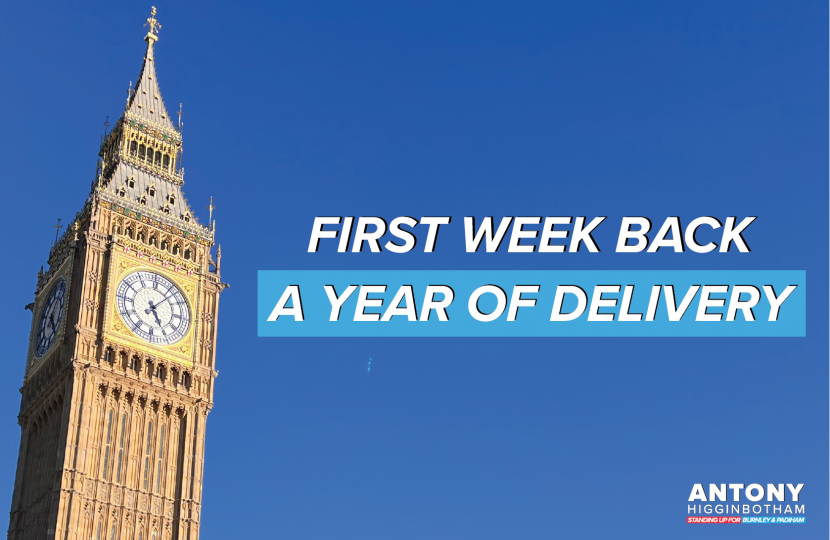
With Parliament back after the Christmas break, I wasted no time in starting off a year of delivery as pledged last week.
The first business was the Procurement Bill. Whilst this might not sound like the most interesting piece of legislation, the impact it could have is huge. And is why I’ve been such a supporter. Using our post-Brexit freedoms, the new Bill will rip up bureaucratic EU regulations and open up more than £300 billion of Government spending on goods, services and public works to small businesses. This will have a direct impact in Burnley and Padiham, allowing our companies to bid for contracts, grow our local economy and give more people access to well-paid jobs.
And that’s the same for skills too where this week we got the news that after much lobbying, 16-19 education is going to get a major funding boost. Since 2019, per pupil spending on primary and secondary age children has increased to record levels – but for colleges it has remained static. The new announcement will not only increase funding but add incentives for engineering and construction, so the very best teachers can be recruited. It’s great news for local students, great news for Burnley College and great news for our local area.
Football was also on the agenda as I welcomed BFC Chairman Alan Pace to Parliament to discuss the state of club football. It came alongside meetings I had with the EFL and the Sports Minister to discuss the pyramid system in place. This system is important for clubs like ours. It’s what enables us to ‘climb the ladder’ and compete at the top level. And it’s a big deal for investment too. This topic, alongside the fan led review was spoken of.
But the big story was the minimum safety levels legislation. Nobody, least of all me, wants to see people feeling the need to strike. But when carried out by critical public sector workers they can have a serious detrimental impact. And in the case of health, disruption of vital services can lead to dangerous situations which puts people's health and lives at risk. That’s why it’s crucial we maintain minimum levels of service during strikes – more than anything for safety reasons. Whilst disputes may arise, it’s key that striking workers do not put the public’s lives at risk. And these new proposals will bring us in line with other European countries. Ironically, it’s the one area I’ve found the Labour Party to be in disagreement with more European alignment.

